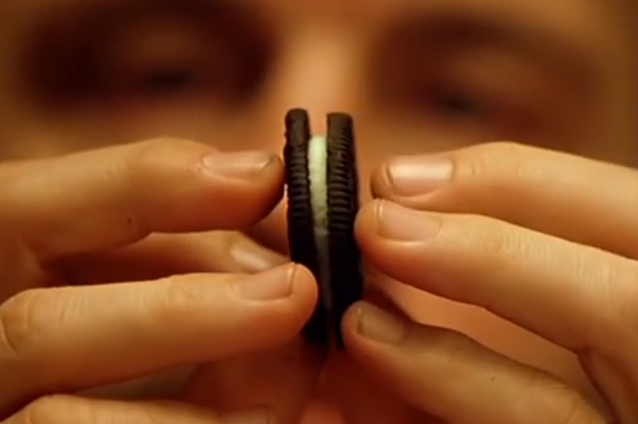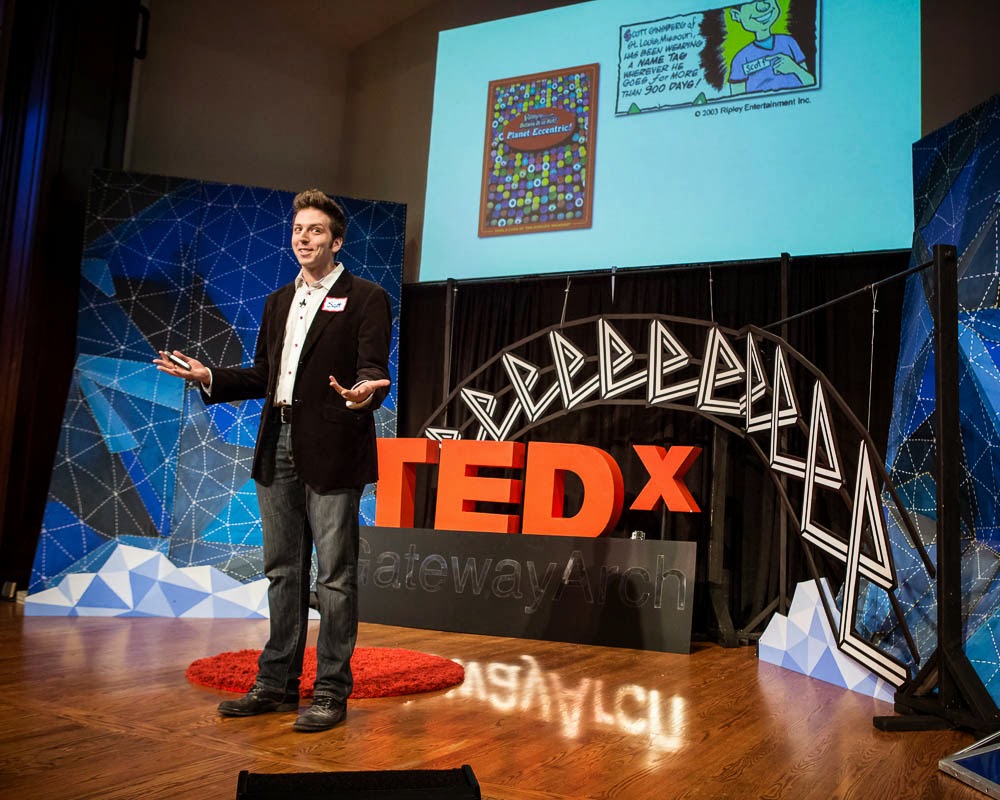

All creativity begins with the moment of conception.
That little piece of kindling that gets the fire going. That initial source of inspiration that takes on a life of its own. That single note from which the entire symphony grows. That single spark of life that signals an idea’s movement value, almost screaming to us, something wants to be built here.
Based on my books in The Prolific Series, I’m going to be deconstructing my favorite moments of conception from popular movies. Each post will contain a video clip from a different film, along with a series of lessons we can learn from the characters.
Today’s clip comes from the Oreo scene from Rounders:
Develop a hypersensitive relationship to the world. Prolific people can metabolize even the smallest events or situations into breakthroughs in thinking and action. To them, everything is a prototype. Any moment can be a moment of conception. Any interaction can contain that tiny, seemingly innocuous detail that triggers a whole new world. And every person they come across has the potential to send them in a new direction. But only because those people are curious and open and present and fully engaged with their surroundings. In poker, for example, this hypersensitive relationship to the world is worth real money. Discovering your opponent’s tell, that is, the subtle change in their behavior or demeanor that assesses their hand, helps you gain an advantage. Teddy’s tell was that when he had nothing and was bluffing, he would break open his cookies. But when he had winning hand, he would not only break open the cookies, but also eat them. If you watch closely, right as Teddy eats the cookie, Mike’s right eye twitches. That’s my favorite moment in the entire movie. Because every day of my life, that same thing happens to me. But instead of cards, it’s words. Phrases and sentences and ideas and words. These are the tells I’m on the lookout for. These are the moments that trigger new worlds for me. The point is, you’ll never find the unexpected unless you’re looking for it. Beginnings of ideas are everywhere, waiting for the eager mind and eye to seize. All we have to do is get good at noticing them. How do you make sense of the world in ways others cannot?
Participate fully in the other person’s experience. I wear a nametag all day, every day of my life. Going on fifteen years now. And so, considering I’ve been conducting the same social experiment, tens of thousands of times, twenty four hours a day, for nearly half my life, it’s safe to say I’ve noticed a few patterns. For example, every time I meet somebody new, I quickly learn everything I need to know about them, solely based on the way they respond to my nametags. It’s like an inkblot test. Their physical and emotional reaction within the first ten seconds of introducing the nametag indicates whether they’re playful or inflexible, curious or judgmental, sophisticated or simplistic, and so on. The list of personality traits never ends. But what’s rewarding is, I can use this emotional information to help guide my thinking and behavior, empathize deeper, connect faster and accelerate intimacy. For example, if I notice someone’s rising or lowering levels of enthusiasm when I tell the story about my nametag, that information is like a traffic sign. It tells me where I should and should not go, and how fast I should approach. Of course, this all happens in an instant. There’s no time for conscious processing. Because after fifteen years, I’m just pattern matching. Maybe I should take up poker. The point is, emotional intelligence isn’t about manipulation, it’s about participating fully in the other person’s experience. Remembering that it’s not just about how they experience you, but how they experience themselves in relation to you. What’s your filter for regulating social behavior?
Life rewards action, not intention. We all need a healthy dose of humility, but we also need to believe that we deserve to be in the room. Because if we’re too awshucksy about our value, we’ll never inspire the appropriate level of confidence. The people across the table won’t take us seriously. I’m reminded of a powerful piece of advice from Paul Arden, who wrote that we have to find the people who have what we want, grab them by the lapel and tell them who we are and why they should give it to us. That sentence literally changed my life. It inspired me to walk into my business meetings with an assertive, intentional and economical posture. In fact, as an experiment, I once showed up unannounced in the lobby of a company I wanted to work for, asked to speak with the president, waited on the couch for more than an hour, and then flat out asked him for a job. He said I had five minutes to make my case. So we went into his office, and forty minutes later, I walked out with my first assignment. And frankly, I couldn’t believe. Who still does that? What is this, the fifties? But that’s precisely the point. Showing up in person works because it’s bold, unexpected, personable, simple, and best of all, nobody does it anymore. Nobody. People always write in their letters that they would be a perfect fit for the organization. But if that was the case, if they truly had no doubt, they would have just showed up. It’s one thing to brag about being the missing piece of the puzzle, it’s another thing to physically snap that piece into place. When was the last time you just showed up?
LET ME ASK YA THIS…
What did you learn from this movie clip?
LET ME SUGGEST THIS…
For a copy of the list called, “11 Ways to Out Market the Competition,” send an email to me, and you win the list for free!
* * * *
Scott Ginsberg
That Guy with the Nametag
Author. Speaker. Strategist. Inventor. Filmmaker. Publisher. Songwriter.
scott@hellomynameisscott.com

Never the same speech twice. Customized for your audience. Impossible to walk away uninspired.
Now booking for 2015-2016.
Email to inquire about fees and availability. Watch clips of The Nametag Guy in action here!
